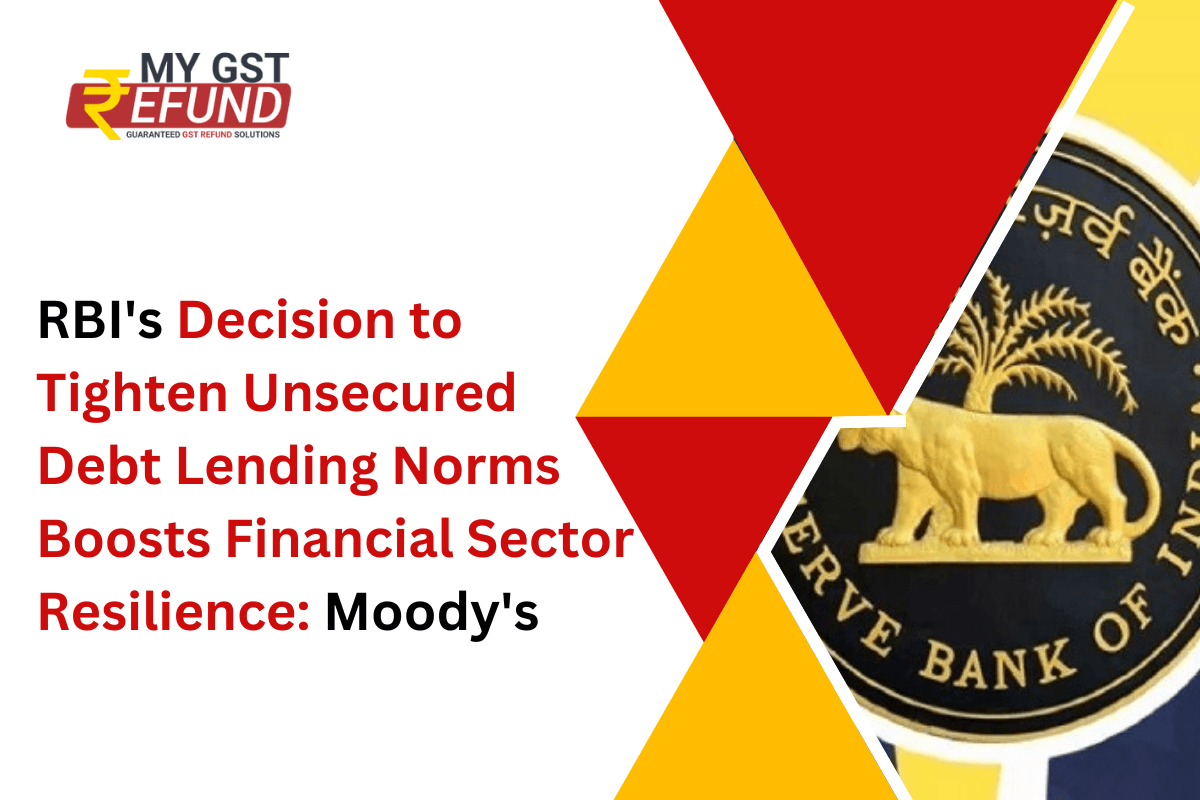RBI's Decision to Tighten Unsecured Debt Lending Norms Boosts Financial Sector Resilience: Moody's
Published on: Wed Nov 22 2023
In a move hailed as credit-positive, Moody's Investors Service has lauded the Reserve Bank of India's (RBI) recent decision to tighten lending norms for unsecured personal loans. The central bank's action involves a 25-percentage point increase in risk weights on unsecured retail loans, credit cards, and lending to non-banking finance companies (NBFCs).
Moody's contends that this decision will enhance the financial sector's resilience by compelling lenders to allocate higher capital for unsecured loans, thereby bolstering their loss-absorbing buffers. The move is seen as a prudent measure to address the rapid growth of unsecured loans in recent years, which has exposed financial institutions to potential spikes in credit costs in the event of sudden economic or interest rate shocks.
Also Read: RBI Tightens Personal Loan Rules, Predicts Rate Increase
In a statement, Moody's noted, "The tightening of underwriting norms through higher risk-weighted assets is credit positive because lenders will need to allocate higher capitals for such loans improving their loss-absorbing buffers and may dampen their growth appetite."
Over the past few years, India's unsecured lending segment has witnessed intense competition, with banks, NBFCs, and fintech companies aggressively expanding their loan portfolios in this category. Personal loans and credit card loans, in particular, have experienced remarkable growth, rising 24% and 28%, respectively, over the past two years, outpacing the overall banking sector's credit growth of around 15%, as reported by Moody's.
Moody's expects that banks will be able to absorb the higher risk weights on their capital, given that the overall banking sector's exposure to unsecured retail credit is relatively small at approximately 10% of loans as of September 2023. The sector's overall capitalization stands at historically high levels, with a Common Equity Tier 1 ratio of 13.9% as of March 2023.
However, Moody's emphasizes that the impact of the new underwriting rules may vary among individual lenders, depending on their exposure to unsecured loans.
Also Read: Trends in Stock Market Investment Strategies
In a similar vein, US-based S&P Global Ratings recently commented that the RBI's decision could potentially impact banks' capital adequacy by 60 basis points. This move may lead to higher lending rates, curtailed credit growth, and increased capital-raising needs, particularly for weaker lenders, according to S&P Global Ratings.
Related Posts





